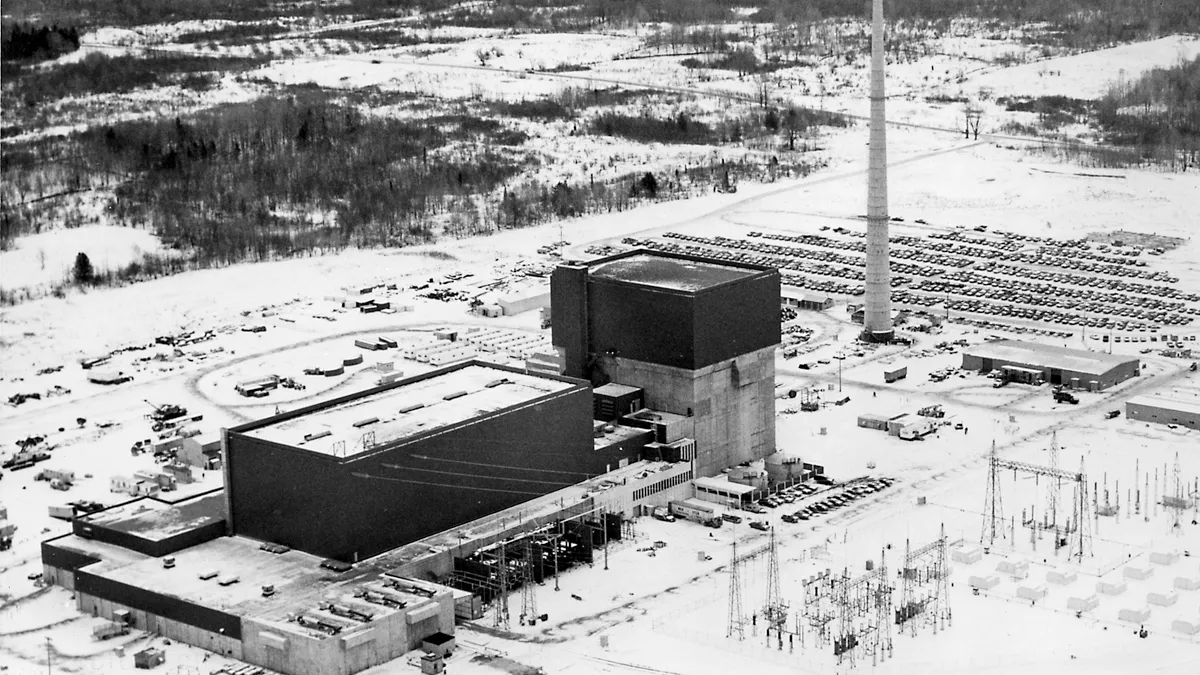Dive Brief:
- Exelon and Entergy have asked the Federal Energy Regulatory Commission to set aside arguments over proposed New York zero emission credit (ZEC) program and approve the transfer of the FitzPatrick nuclear plant in New York, SNL reports.
- Public Citizen has filed to block Exelon's acquisition of the plant, arguing the companies omitted references to New York State’s $8 billion nuclear subsidy in their filing.
- Entergy had been planning to shutter the struggling facility, but Exelon agreed to purchase it for $110 million, contingent on the state developing credits to keep it profitable.
Dive Insight:
Exelon and Entergy last week pressed FERC to set aside issues related to nuclear subsidies, arguing the new credit is unrelated to whether or not the plant deal should be approved. The companies said Public Citizen failed to show there would be any market impact, and would have a chance to address those issues in other proceedings.
"Public Citizen’s assertions regarding the potential impact of the ZEC on NYISO’s energy and capacity markets are at best speculative and not supported by evidence," Exelon and Entergy wrote in their filing.
Instead, FERC must look at the impact of the sale on competition, rates and regulation, the generators said. "The issues raised in the protest about the ZEC program bear no relationship to these factors as they relate to the proposed transaction, and no separate analysis of the ZEC is necessary, much less required," they said.
Entergy had threatened to shutter the 838 MW FitzPatrick nuclear plant in Oswego before New York Gov. Andrew Cuomo (D) proposed the ZEC program, allocating about $8 billion over 12 years to three of the state's nuclear power stations. The Public Service Commission unanimously approved the proposal in August. If Exelon is allowed to purchase FitzPatrick, the deal would add to its New York nuclear portfolio, giving it three nuclear plants in the state, including the 576 MW Ginna plant and the 1,907 MW Nine Mile Point station.
It's no surprise the ZEC program is facing legal challenges, since it dives into new market territory. Electric generators filed suit last week, saying the program intrudes on federal jurisdiction of wholesale markets, echoing concerns from a Supreme Court case.
Earlier this year, the U.S. Supreme Court struck down a plan in Maryland designed to incentivize new in-state power generation by outlining a price floor while using ratepayers to make up the potential differences. In its ruling the Supreme Court upheld FERC's authority over wholesale markets, though it left open a narrow pathway for other state generation incentives.
PSC Chair Audrey Zibelman defended the program, saying the plan was "carefully designed" to not run afoul of federal oversight.















